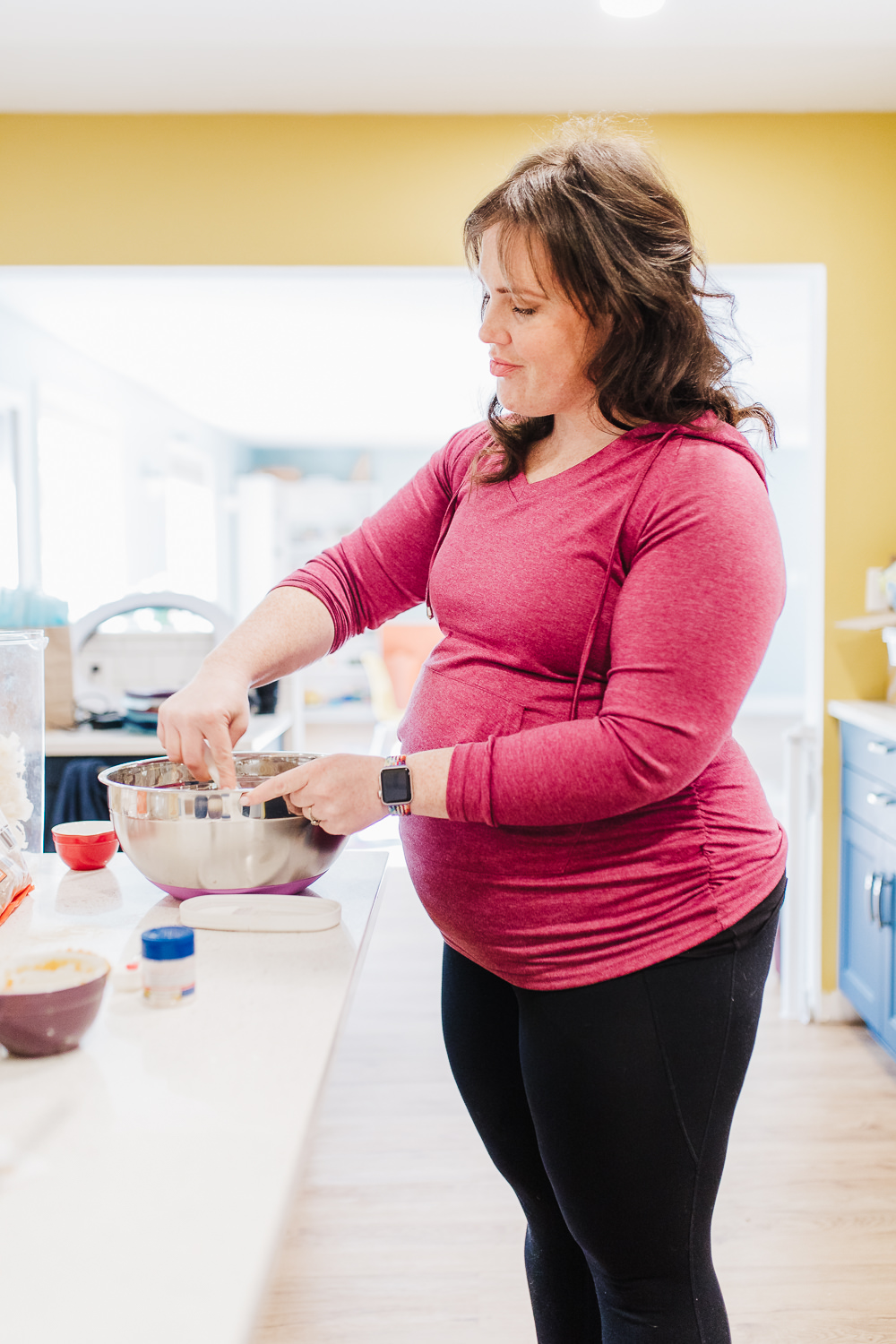Programs
Blog
About
PRegnant
LifeStyle
Postpartum
EXPECTING A BABY IN THE NEXT FEW MONTHS?
DOWNLOAD MY FREE POSTPARTUM ESSENTIALS CHECKLIST
Hi, I'm Liz!
I'm a chocolate-loving nutritionist,
pre & postnatal coach, doula and let's face it- total birth nerd 🤓.
I'm here to help you cut through mommy-marketing and pinterest perfection to confidently cultivate a pregnancy and postpartum experience you totally love.
Let's Connect
RECIPES
BREAKfast
beverages
main dish
dips & Dressings
salads & Sides
snacks
soups
treats
instant pot
one dish meals
quick meals
Pregnancy
Birth Planning
FIrst Trimester
Second Trimester
THird Trimester
Postpartum
Postpartum Planning
FOurth Trimester
REcovery
wellbeing
Fitness
Pregnancy Loss
Understanding Loss
Recovery After Loss
Friends & Family SUpport
PArent Life
Pregnant?
Check out the
5 core exercises you need to know!
Take the stress off your plate! Download
Meals Made Simple!
i need this!
Yes Please!
shop SAfer at beautycounter
Get the BEst Non-toxic Deodorant!
FItness
Nutrition
Nutrition
Grief & wellbeing
Pregnancy After Loss
Understanding Loss
Recovery After Loss
Friends & Family SUpport
Grief & wellbeing
Pregnancy After Loss
Understanding Loss
Recovery After Loss
infant & Toddler Feeding
Grief & wellbeing
Pregnancy After Loss
Newborn Care
Family Dynamics
PArent Relationships
lactation
Pregnancy After Loss
5 Ways to Reduce Morning Sickness
Morning sickness is a real piece of work. The joy of discovering you’re pregnant may be quickly washed away with the sea nausea that typically rules the first trimester. If this sounds familiar, know you’re not alone! In fact, 70-80% of women will experience some degree of nausea and vomiting through pregnancy (1). While there’s no cure for nausea through pregnancy, there are some effective, easy, and all natural ways to reduce morning sickness
Nausea in pregnancy is commonly referred to as morning sickness because it most frequently occurs in the morning. However, pregnancy nausea can occur at any point during the day (2). During my first pregnancy, I was fine first thing in the morning. But 10am rolled around, nausea set in and I was green as grass, sipping on green juice spiked with ginger.
If you’re experiencing extreme prolonged nausea, please connect with your care provider! In a small percentage of pregnancies (0.2%–5%), persistent and excessive nausea and vomiting resulting in dehydration, electrolyte imbalance, and weight loss, known as Hyperemesis gravidarum, can occur (2). This requires medical attention.
Why do we have to put up with this?
It is theorized that morning sickness is an evolutionary protective mechanism, helping mothers avoid or expel certain foods that may be contaminated (4). This could be why protein and leafy greens aversions seem to be so common during the first trimester, when the fetus is the most vulnerable.
If you’re part of the lucky 20% or so that don’t experience nausea and vomiting in pregnancy, you may still notice that you actively avoid or are even repulsed by foods you enjoyed pre-pregnancy! Coffee, spoiled foods, cigarette smoke, gasoline and perfumes are some of the most common nose offenders in pregnancy (5). When I was pregnant with my first kiddo, I couldn’t stand the smell of turkey or poultry seasonings. (And yes, I was pregnant through thanksgiving, so that was fun). Again this could be part of the protective mechanism similar to nausea and vomiting.
So we know morning sickness is really common, it can occur at any point during this day, and that it is most likely an evolutionary protection both for mom and baby. But how can we rock through that first trimester nausea and keep our quality of life enjoyable?
5 Ways to Reduce
Morning Sickness
Ginger
Ginger is one of the most effective and safe herbal remedies to aid in pregnancy nausea and vomiting. This spicy root contains gingerols and shogaols which help with motility and gastric emptying (6). The stomach provides the chemical (gastric juices, yum) and mechanical breakdown of food (motility), but during pregnancy this process is slowed down, leading to nausea, gas, constipation or other digestive distress. Incorporating ginger root can give your digestion a boost and reduce morning sickness.
Favorite ways to incorporate ginger:
Ginger Root Tea
Ginger Chews
Gingersnap Cookie Bars
Eat protein first thing in the morning
Keeping a whole food snack on your nightstand you can eat before you even get out of bed may help reduce morning sickness. Things like larabars, a small handful of nuts and seeds, or our banana walnut granola are all great things to keep bedside. But then breakfast with… protein! Eating a protein rich breakfast can reduce cravings through the rest of the day and help you maintain good energy and balanced blood sugar through the day. For more on this, be sure to listen to our interview with Lily Nichols, RD on episode 20 of the Beyond Birth Podcast. Eggs and bacon may not sound great to you right now, so try one of these protein rich breakfasts!
Chocolate Raspberry Smoothie
Pumpkin Green Smoothie
Cinnamon Vanilla Chia Pudding
Avoid overstimulation
Overstimulation from flickering fluorescent lights and blaring music can actually make nausea worse. (Is it the workout that’s making you nauseous or the just the environment?) Flicker vertigo, from strobing lights or flickering screens, can cause nausea for those who are particularly sensitive. Take frequent breaks outside if possible and seek calm environments with natural light to move in. Fresh air can improve mental clarity, reduce grogginess, and reduce pregnancy induced nausea and vomiting(7).
Prenatal Vitamins Plan
Some women experience increased nausea from prenatal vitamins, especially if they contain iron. While it’s important to take them, it doesn’t help if they come right back up or make you feel like garbage all day. Here are a few tips to lessen their nausea inducing effects:
Break up the dose throughout the day
Don’t take on an empty stomach.
Take at night just before bed
Make sure your prenatal has vitamin B6, which has been shown to reduce nausea.
Gentle movement
Burpees, jumping jacks, and big movements may not be your friend right now. Exercise and endorphins can improve your overall sense of well-being and may reduce your nausea, but stick to a gentle movement flow.
Move through this hip-opening gentle flow workout 3-5 times, spending 1 minute in each position.
-
- Cat Cow
- Lizard
- Bird Dog
- Shinbox Switch to Tripod
- Low Squat Hold and Sway
- Down Dog or Puppy Dog
- Child’s Pose
- Lee, N. M., & Saha, S. (2011, June). Nausea and vomiting of pregnancy. Retrieved from https://www.ncbi.nlm.nih.gov/pmc/articles/PMC3676933/
- Lete, I., & Alluέ, J. (n.d.). The Effectiveness of Ginger in the Prevention of Nausea and Vomiting during Pregnancy and Chemotherapy – Iñaki Lete, Josέ Alluέ, 2016. Retrieved from https://journals.sagepub.com/doi/full/10.4137/IMI.S36273
- The American Naturalist. (n.d.). Retrieved from https://www.journals.uchicago.edu/doi/full/10.1086/588081
- (n.d.). Retrieved from https://www.journals.uchicago.edu/doi/abs/10.1086/393377
- Cameron, & Leslie, E. (2014, January 17). Pregnancy and olfaction: A review. Retrieved from https://www.frontiersin.org/articles/10.3389/fpsyg.2014.00067/full
- Lete, I., & Alluέ, J. (n.d.). The Effectiveness of Ginger in the Prevention of Nausea and Vomiting during Pregnancy and Chemotherapy – Iñaki Lete, Josέ Alluέ, 2016. Retrieved from https://journals.sagepub.com/doi/full/10.4137/IMI.S36273#_i2
- Nausea and vomiting in pregnancy: Results of a survey that identified interventions used by women to alleviate their symptoms. (n.d.). Retrieved from https://www.tandfonline.com/doi/abs/10.3109/01674820309042804
Related
July 12, 2019
Liz Winters
The post may contain affiliate links and the site may earn a commission on some products.
Every item on this page is chosen and recommended by the LWW team.
Read more about our Affiliate Disclosure here.
Holiday hits
Don’t miss these!
Want to add a little ease to your routine as a parent?
Get all my favorite tips, tricks and recipes delivered straight to your inbox.
start here
blog
work with liz
programs
non-toxic living
podcast
contact
© 2021 LIZ WINTERS WELLNESS // WEBSITE BY PINEGATE ROAD
Terms & Conditions
start here
blog
work with liz
PROGRAMS
non-toxic living
podcast
contact
© 2021 LIZ WINTERS WELLNESS // WEBSITE BY PINEGATE ROAD
Terms & Conditions
BADASS Birther's Club
Postpartum Recovery After Pregnancy Loss
How to Support Loved Ones After Loss
start here
blog
work with liz
PROGRAMS
non-toxic living
podcast
contact
© 2021 LIZ WINTERS WELLNESS // WEBSITE BY PINEGATE ROAD
Terms & Conditions
Pregnant
Postpartum





